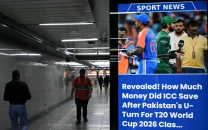The BNP’s ill-advised boycott
Had the BNP chosen to participate, it would have had at least some stake in the system.

The AL and the BNP are at loggerheads with each other over grave issues, including alleged poll-rigging by the former and the question of what constitutes an impartial caretaker government. But as potent as these differences may be, why must they precede the plight of the Bangladeshi people? Is it a good idea to boycott elections over them? I spoke to journalist Maskwaith Ahsan, who is an expert on Bangladesh’s political affairs. “I think the BNP has made a mistake by not taking part in the elections,” he said. “When a major political party opts out of the electoral process, a one-sided parliament is created, which raises concerns that the government may become autocratic.”
Electoral boycotts are often marked by violence and subsequently, lead to thin voter turnouts. The AL won 232 out of 300 seats, of which nearly half were uncontested due to the boycott. Boycotting elections is rarely a favourable strategy, unless the opposing party has massive public support. Given the BNP’s affiliation with the right-wing Jamaat-e-Islami, and success of the 2013 Shahbag movement, it is unlikely that the BNP will be able to garner support of the predominantly young population of Bangladesh. It can also pave the way for the military to take charge, which it did on January 11, 2007, due to the political chaos caused by the AL’s electoral boycott at the time. Ahsan shared, “The youth is scared of two things; one, extremism, and two, military takeovers.”
Had the BNP chosen to participate, it would have had at least some stake in the system. I may be commenting as a bystander, but the BNP, which holds the power to redress the woes of the Bangladeshi people, was nothing less than an onlooker in the electoral process. The matriarchs of Bangladesh, the AL’s Sheikh Hasina and the BNP’s Khaleda Zia, must work with the spirit of altruism. Don’t bail out and boycott. Pressurise, but participate.
Published in The Express Tribune, February 4th, 2014.


















COMMENTS
Comments are moderated and generally will be posted if they are on-topic and not abusive.
For more information, please see our Comments FAQ